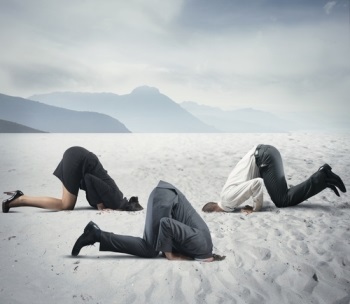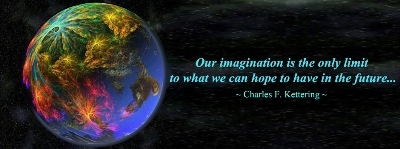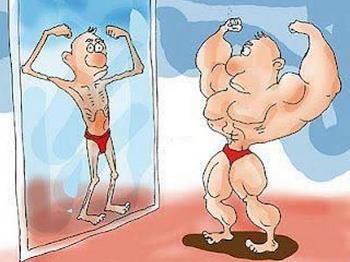Jeremie Averous's Blog, page 96
December 15, 2015
How to Communicate on the Truth When People Don’t Want to Hear It
I love this quote: “The truth will set you free, but first it will make you miserable.” – somehow apparently wrongly attributed to James A. Garfield (former president of the US). Yet I find it ever to true in particular because part of my job as consultant is sometime to tell the truth everybody sees in the organization but no-one dares tell top management.
 One issue with telling the truth is that it needs to be done the right way: it needs to be done in a way that avoids outright rejection. If rejection happens, then it was no use.
One issue with telling the truth is that it needs to be done the right way: it needs to be done in a way that avoids outright rejection. If rejection happens, then it was no use.
In these tough situations, there are several ways to avoid rejection, which are best combined:
establish a trust relationship with the person you need to tell the truth (the longer relationship the better; good references also help),
tell the truth in a manner that passes the message while still being (borderline) acceptable by the recipient; the best is to interact at that occasion to calibrate the message,
exploit time to make the revelation gradually accepted, through repetition and letting time and nights do their work in the subconscious.
I am convinced that Truth will hurt on the short term, still it is a much better remedy on the longer term. Tell it, and tell it the right way.

December 12, 2015
How to Overcome Your Limits
Imagination is the real limit of what you can or what you can become. And we are all somehow locked into the limits of our imagination.
 Hence one way to overcome our limits is to give free flow to our imagination.
Hence one way to overcome our limits is to give free flow to our imagination.
It is an interesting approach because it does not call for action or overcoming our fears. It just suggests as a first step to dream ourselves into what we want to be, beyond the limits we impose to our imagination right now.
Do you put any limits to your imagination? What if you would remove them and dream about what you really want to be? Imagine… and make it happen!

December 10, 2015
Why Profit Will Increasingly Be At the Edge of the Existing
“In a market-exchange economy, profit is made at the margins” writes Jeremy Rifkin in his interesting book ‘The Zero Marginal Cost Society‘. His argument is that the natural trend for commodity products’ price is to tend to zero; and this trend has significantly accelerated in the last decades.
 A great product creating high value and profits, at the edge of the existing
A great product creating high value and profits, at the edge of the existing“As more and more of the goods and services that make up the economic life of society edge toward near zero marginal cost and become almost free, the capitalist market will continue to shrink into more narrow niches where profit-making enterprises survive only at the edges of the economy, relying on a diminishing consumer base for very specialized products and services“.
The model where you copy the existing is less and less sustainable. If you want to create value, and hence profit, place yourself at the edge. How does your current strategy fare?

December 8, 2015
Why Systemic Understanding is Required for Deciding on Changes
It is amazing how most people think and act to optimize their little corner without taking into account the entire system they are in.
In my consulting practice I am involved in a number of process changes in organization. The more these organizations have integrated systems and processes, the more delicate any changes are because of the consequences across many disciplines. Still, a lot of people are just trying to optimize their small segment of work, generally trying to remove some stuff they are doing not for their own sake, but for the sake of the organization. It is not the solution!
 This is particularly visible in large projects, which generally involve Engineering, Procurement and Construction. These different areas are deeply inter-related, and most people don’t understand that. Changes in one area can have significant consequences in other areas. It takes experienced people that have a systemic understanding to accept or refuse those changes. We can’t let people try to optimize locally. Optimization needs to be global, systemic.
This is particularly visible in large projects, which generally involve Engineering, Procurement and Construction. These different areas are deeply inter-related, and most people don’t understand that. Changes in one area can have significant consequences in other areas. It takes experienced people that have a systemic understanding to accept or refuse those changes. We can’t let people try to optimize locally. Optimization needs to be global, systemic.
The complexity of our lives increases. We don’t always understand the indirect consequences of our actions. Let’s try to systematically take a systemic view before changing things.

December 5, 2015
How Entrepreneurship Highlights Strengths and Weaknesses
Based on my modest experience as entrepreneur since 4 years+, I increasingly find that entrepreneurship is extraordinarily revealing one’s strengths and weaknesses. In particular of course when business is tough.
 Of course, that might be the case for any activity in which you need to commit fully, where success is based on your efforts in a varied range of activities and where your livelihood depends on it immediately (that makes some difference with executive positions in large companies where there is more reaction time and livelihood is less directly dependent on one’s actions). But I haven’t found so many activities responding to these criteria apart from entrepreneurship!
Of course, that might be the case for any activity in which you need to commit fully, where success is based on your efforts in a varied range of activities and where your livelihood depends on it immediately (that makes some difference with executive positions in large companies where there is more reaction time and livelihood is less directly dependent on one’s actions). But I haven’t found so many activities responding to these criteria apart from entrepreneurship!
I know for a long time that my weakness is getting along well in social environments and all business development activities. I’m rather shy and introvert, and not at ease in large social activities or cold-calling. Still I have to make the effort as my company’s future depends on it.
Entrepreneurship can thus be recommended as a great self-development activity, in that you are faced with your weaknesses with acute pain, and you need to make the effort to overcome them, going out of your comfort zone. You have to, there is no other choice (apart from going back to salaried employment).
It’s tough, and it feels some days like I’d like to throw the towel. It’s probably good, because I have to work on myself to compensate my weaknesses. It’s exhilarating, because the possibilities are endless.

December 3, 2015
How Improving Risk Management in Infrastructure Projects is Not Enough
Delivering infrastructure projects in a way that delivers the expected benefits is essential for the good utilization of public and private resources. Still, many infrastructure projects do fail, sometimes miserably and publicly, like for example the new Berlin Brandenburg airport. Causes are almost always the same – poor governance, poor management of changes during the project, and poor coordination of contractors and their interfaces.
 The new Berlin Brandenburg airport, still empty 4 years after construction finished
The new Berlin Brandenburg airport, still empty 4 years after construction finishedAn interesting paper by McKinsey proposes as a solution to these failures that the risk management framework around large infrastructure projects should be deeply reviewed. In typical McKinsey style they state “In our view, most overruns are foreseeable and avoidable. Many of the problems we observe are due to a lack of professional, forward-looking risk management“. The paper goes on with good recommendations on how to implement a comprehensive and consistent risk management process throughout the entire project lifecycle.
But is that sufficient? In my view, process-based solutions are only effective if there is no basic governance breakdown. And more often than not, this is the issue, with situations such as:
over-inflated usage expectations, to justify the investment, based on other motivations (political, status within the company, etc.),
under-estimated costs and duration to make the investment more palatable to investors,
under-estimated effort to coordinate the project and poor contractual approaches with contractors
etc.
It happens too often that we are called as consultants to sort out an issue in the mechanistic project execution only to find out that it is the entire project governance that is rotten to the core.
No amount of process will deal with this issue if the system is not ready for candor and self-examination. It is often necessary to take a broader view and address the complexity of decision-making to deal with problems. It’s often tough and we feel like pulling teeth, but that is what needs to be done when things go awry in infrastructure projects.

December 1, 2015
Why We Need to Restore Productivity Through Collaboration
Productivity is the basis of wealth. Yet after decades of sustained growth in the Industrial Age, its growth has been progressively slowing down since the 1970s, and is almost plateauing today. This causes economic stagnation.
In a very interesting TED talk, Yves Morieux explains how this crisis is due to a change in the concept of efficiency – because value has shifted, due to the Fourth Revolution.
Yves Morieux explains that the traditional tenets of the corporation (clarity, measurement, accountability) are obsolete and have to be replaced by collaboration. “To cooperate is not a super effort, it is how you allocate your effort. It is to take a risk, because you sacrifice the ultimate protection granted by objectively measurable individual performance. It is to make a super difference in the performance of others, with whom we are compared”.
“Clarity, accountability, measurement were OK when the world was simpler. But business has become much more complex”. And thus the processes and effort around clarity, measurement and accountability and the innumerable processes around these issues have become a liability instead of an advantage.
Collaboration is the key to effectiveness in a complex world. Remove the rules around individual measurement and focus on getting the maximum out of collaboration!

November 28, 2015
How Room Temperature Can Change Dramatically Meeting Outcomes
Marshall Goldsmith describes an astonishing experience in his new book ‘Triggers‘: “Many years ago I was speaking at an off-site gathering of partners from a consulting firm. Although my previous work with this firm had gone well, this time something wasn’t working. No give-and-take, no lively laughter, just a group of very smart people sitting on their hands. I finally realized that the room was too hot. Amazingly, by merely turning down the temperature in the room, the session got back on track”
 I think Marshall makes an excellent observation and it’s a key learning point for me in my facilitation activities for the future! Marshall Goldmith has now decided that room temperature was a key parameter to set: “Like a rock star demanding red M& Ms in the dressing room, I’m now a bit of a diva about insisting on a cool environment for my presentations.”
I think Marshall makes an excellent observation and it’s a key learning point for me in my facilitation activities for the future! Marshall Goldmith has now decided that room temperature was a key parameter to set: “Like a rock star demanding red M& Ms in the dressing room, I’m now a bit of a diva about insisting on a cool environment for my presentations.”
Up to now, while I knew that it is important to care about the comfort of the participants, I had not identified how temperature plays such an important role. Maybe we should also review that parameter in our offices and where we do important presentations!

November 26, 2015
Why We Need to Enroll our Environment in any Change Intent
Marshall Goldsmith, well-known coach, writes in his last book ‘Triggers: Sparking positive change and making it last‘: “Our behavior is shaped, both positively and negatively, by our environment— and a keen appreciation of our environment can dramatically lift not only our motivation, ability, and understanding of the change process, but also our confidence that we can actually do it”
 The core theme is that it is quite difficult, even impossible, to change anything without taking into account our environment, and in particular our social environment. It will require to inform them that we intend to change; and even to draw the people around us to participate actively to our change. That is in particular the case when they are affected and easier if they support the change.
The core theme is that it is quite difficult, even impossible, to change anything without taking into account our environment, and in particular our social environment. It will require to inform them that we intend to change; and even to draw the people around us to participate actively to our change. That is in particular the case when they are affected and easier if they support the change.
Because without changing our environment, most of our change efforts are doomed. Everyone must recognize that you intend to change, and that you are changing.
If you intend to introduce a substantial behavioral change in your life, make sure to involve the people around you, up to having them play specific roles!

November 24, 2015
Why Learning Comes from Giving
For a long time I have found that the best way of learning is teaching. It is a bit of a double-edge sword of course (you need to know a minimum to be able to teach) but the preparation and the performance of the course really nail the knowledge down. And the questions and challenges from the students do help light up some obscure corners as well.
 Roland Barth, a specialist of school learning, is quoted to say: “The most powerful form of learning, the most sophisticated form of staff development, comes not from listening to the good words of others but from sharing what we know with others. Learning comes more from giving than from receiving. By reflecting on what we do, by giving it coherence, and by sharing and articulating our craft, knowledge, we make meaning, we learn.”
Roland Barth, a specialist of school learning, is quoted to say: “The most powerful form of learning, the most sophisticated form of staff development, comes not from listening to the good words of others but from sharing what we know with others. Learning comes more from giving than from receiving. By reflecting on what we do, by giving it coherence, and by sharing and articulating our craft, knowledge, we make meaning, we learn.”
I love that sentence: Learning comes more from giving than from receiving.
This statement is actually potentially much more far-reaching than just the issue of teaching. It applies throughout our life: we can’t learn without some exchange. We can’t learn without giving. And it is those lessons that matter.
Quote extracted from the book ‘Optimizing the Power of Action Learning‘ by Michael Marquardt




